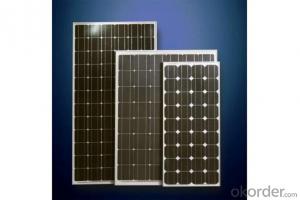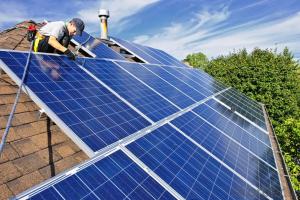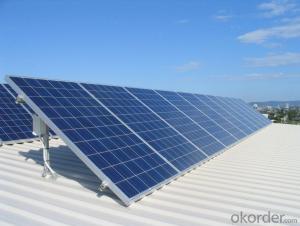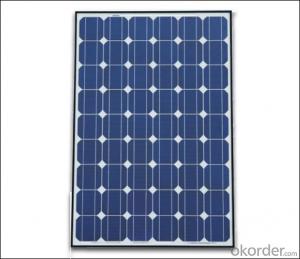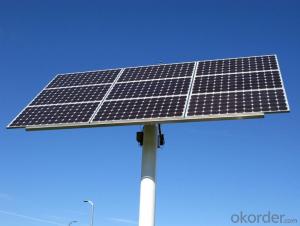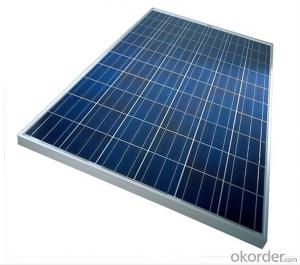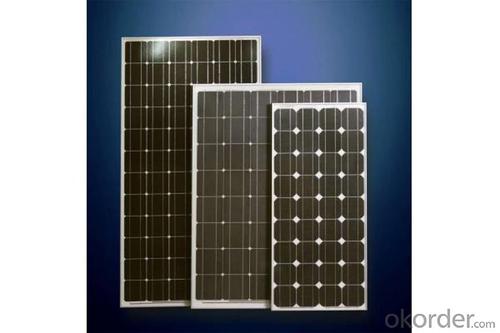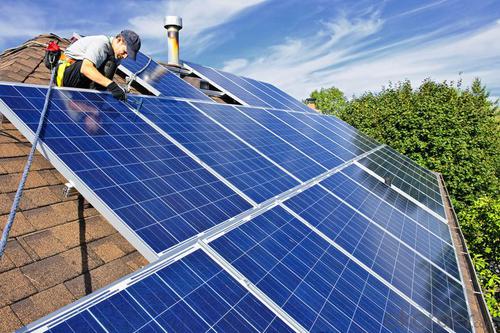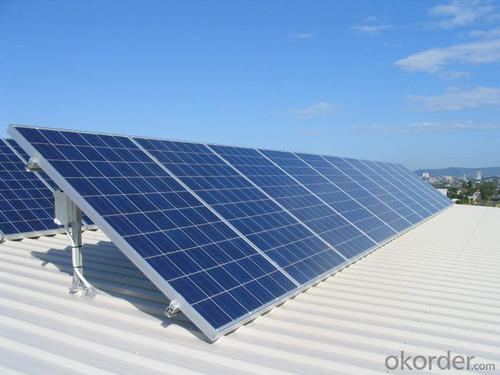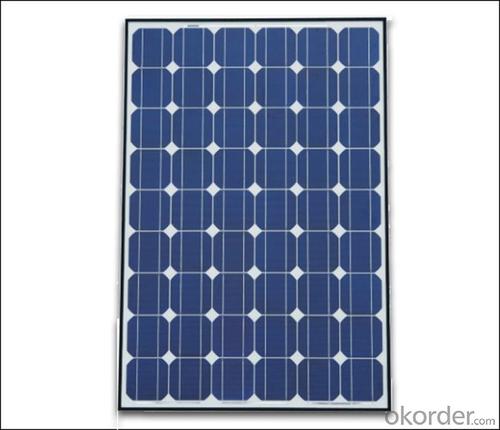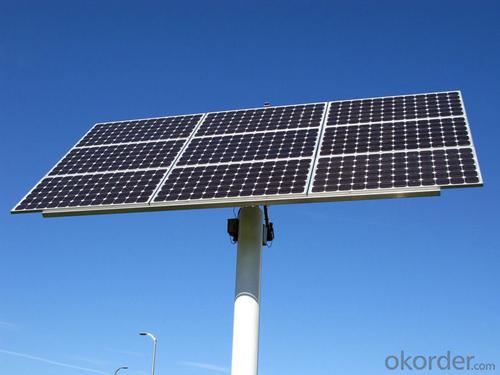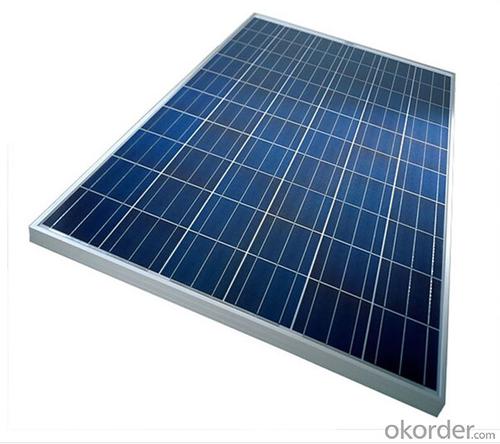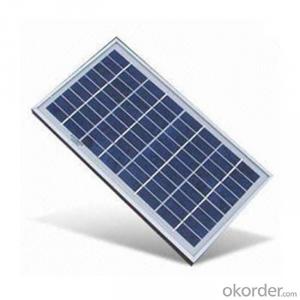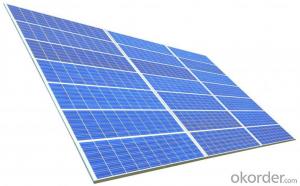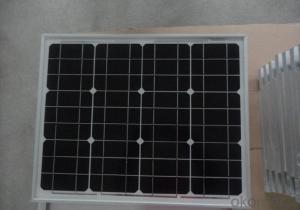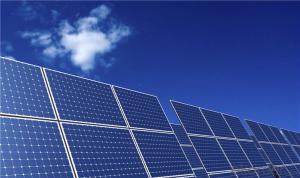1000 Watt A Grade Solar Panels - 230W Solar Panel Manufacturers in China
- Loading Port:
- China main port
- Payment Terms:
- TT OR LC
- Min Order Qty:
- 10000 watt
- Supply Capability:
- 100000000 watt/month
OKorder Service Pledge
OKorder Financial Service
You Might Also Like
Specification
Description
High cell efficiency PV solar panel with quality silicon material for long term output stability and reliability.
Rigorous quality control to meet the highest international standards.
High transmittance, low iron tempered glass with enhanced stiffness and impact resistance.
Unique frame design with high mechanical strength for easy installation.
Advanced encapsulation material with multilayer sheet lamination to provide long-life and enhanced cell performance.
Outstanding electrical performance under high temperature and low irradiance conditions.
48 Back-Contact monocrystalline Si solar cells (approx. 18.35%).
Our Advantages
Long Service Life
2.High Efficiency Solar Cells
3.Special Aluminum Frame Design
4.High Transmission, Low Iron Tempered Glass
5.Advanced Cell Encapsulation .
Solar System characteristic:
1. All Systems have LCD digital display which allows you to see the system working, (eg) Charge data, System voltage, Daily power consumption and temperature.
2. All type of BPS system both has AC and DC output.
3. All system have automatic switch , If mains power goes off the system will switch automatically over to battery power, When mains power resumes
the system will switch back automatically. The batteries will resume recharging automatically.
4. All inverters are Pure Sine Wave inverters. This allows the use of Air Conditioners and refrigerators without any problem.
5. Each component has a single chip detector. Assembled by the IPM or IGBT of Mitsubishi
This protects the system from Overloads, Low Voltage and Under Voltage (alarm) Over Heating, Short circuit, Reverse Polarity.
Product details show
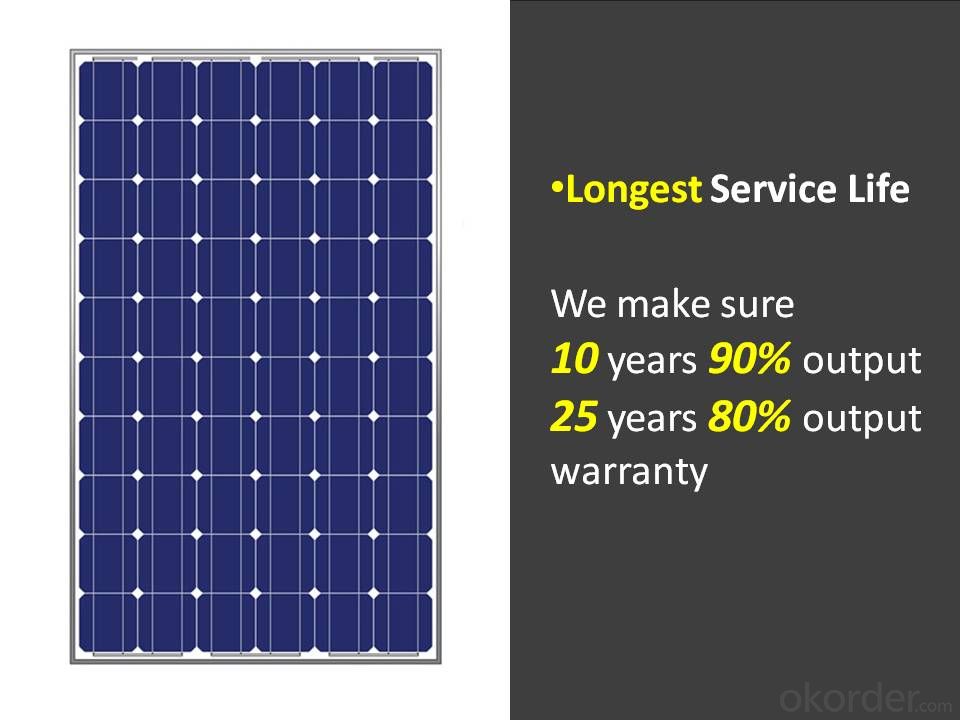
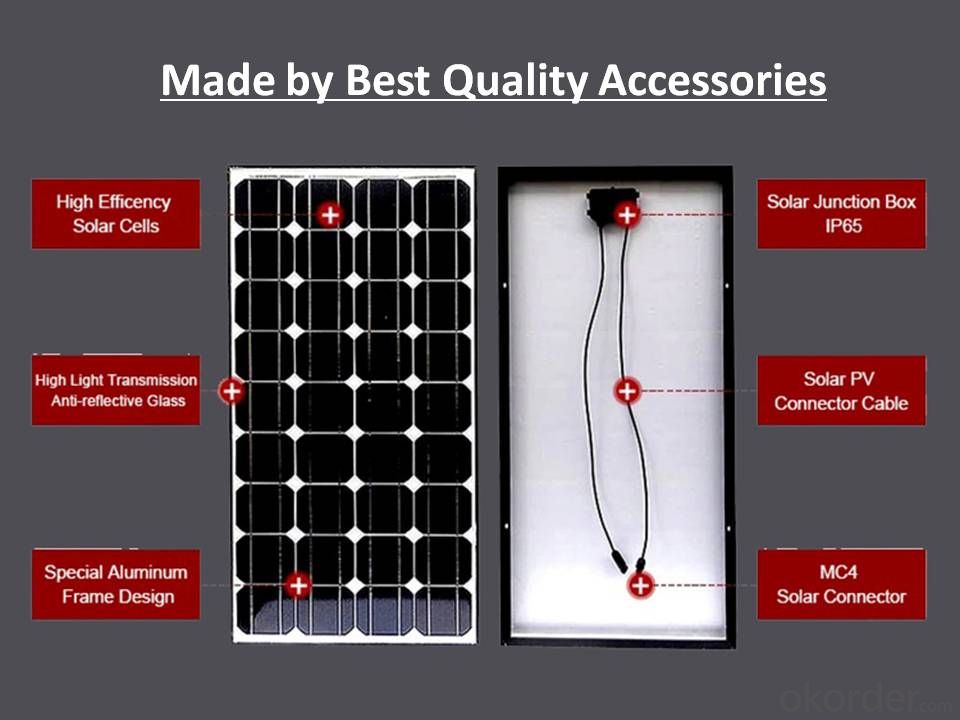
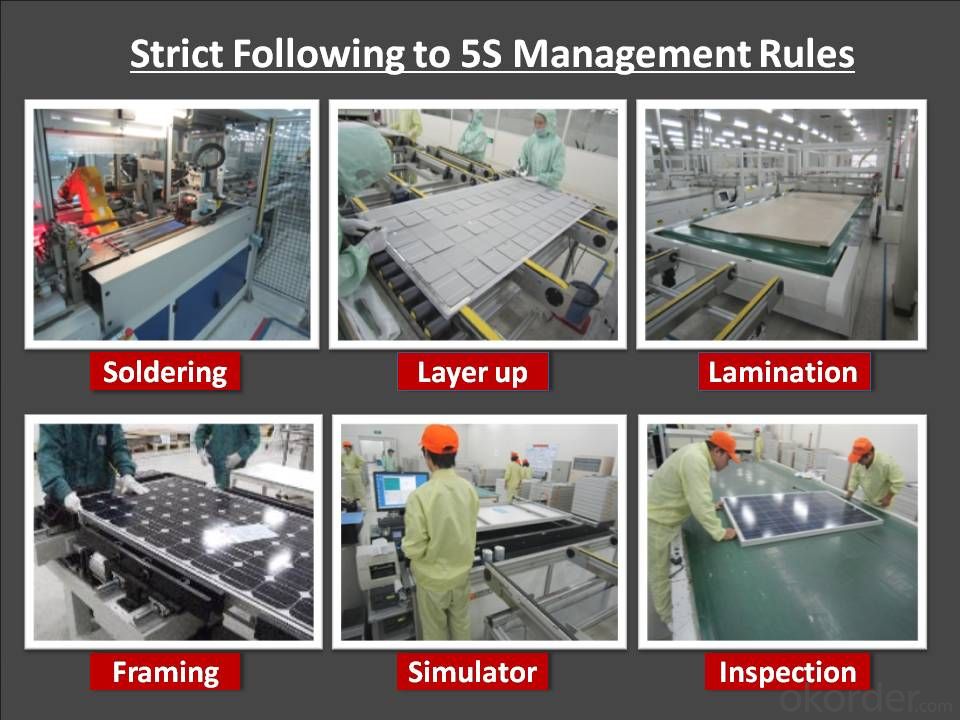
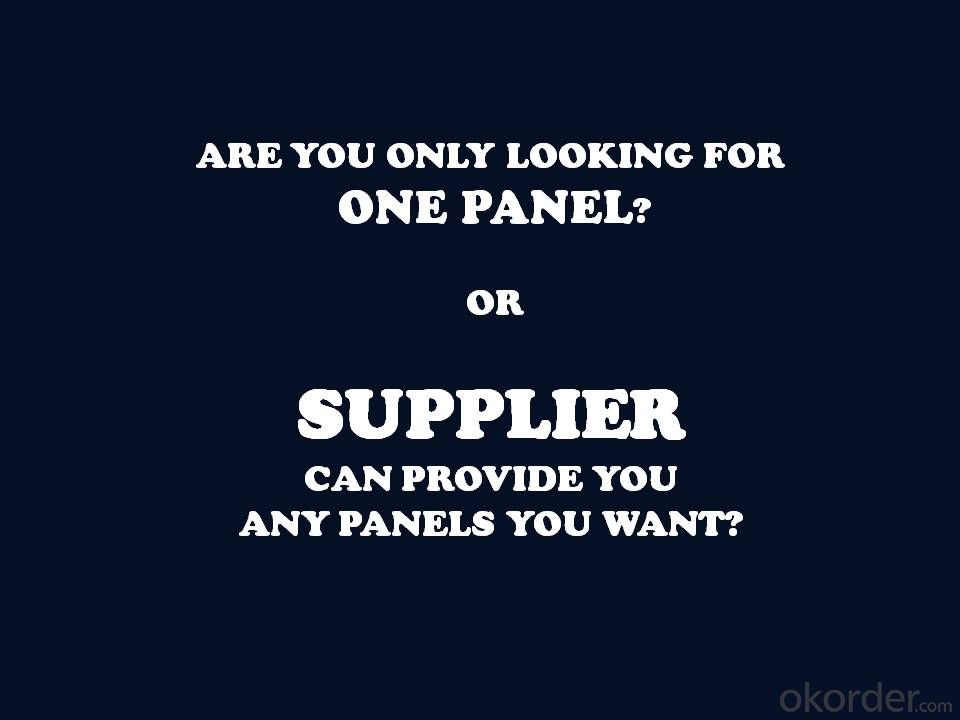
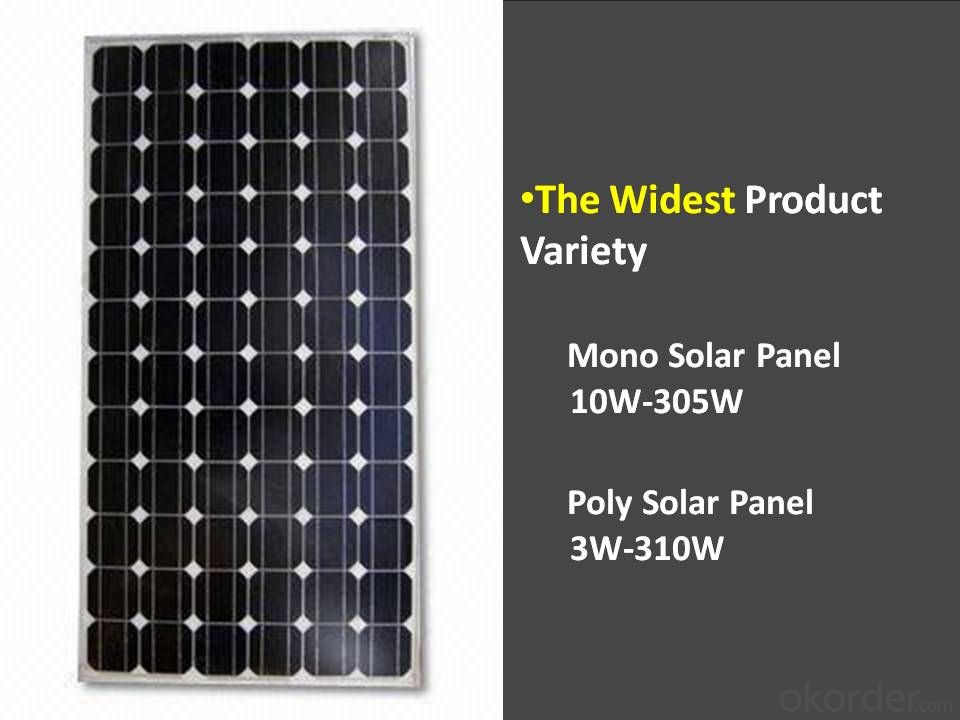
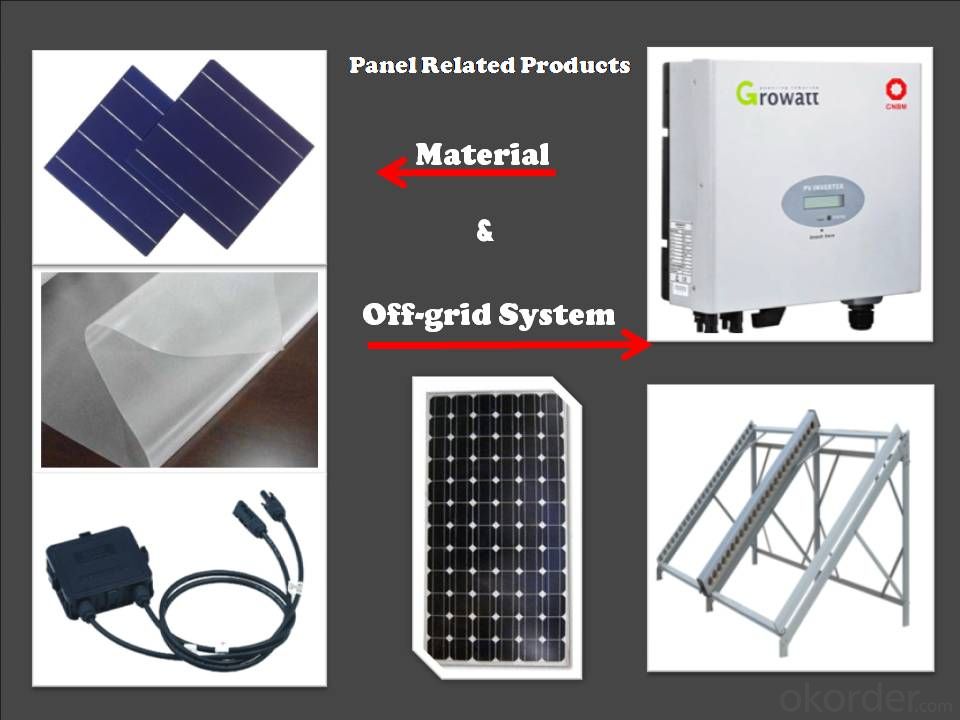
Our Service
1. We will reply with in 24 workingday hours.
2. The size and voltage of solar panels can be customized by customers' requirements.
3. Professional manufacturer. You are warmly welcomed to visit us!
4. We have a professional engineers team, we can answer your questions about our products.
5. Each step after many tests to ensure that the panel can work normally.
6. We will be offer a good discount for big amount.
- Q: Can solar panels be used for charging electric bikes?
- Yes, solar panels can be used to charge electric bikes. By converting sunlight into electricity, solar panels can provide a clean and renewable source of power for charging the batteries of electric bikes. This allows for sustainable and eco-friendly transportation options.
- Q: I need to reduce the average monthly home electricity bill by powering some of the household appliances using solar panels. Can I use a 250 watt solar panel to power a medium sized upright fridge?
- Well you might reduce your bills, but you wont get your capital back for many years. Do you have LED lighting, I have, every-time one of my compact flourescent bulbs blew I would replace it with an LED, after two years most of my lighting is LED, a good investment I think. What devices do you have, heating and cooking is better with gas (much cheaper) Think about better insulation for wintertime.
- Q: I need to build a battery array to use with my solar panels I just bought. I want to be able to store enough energy to be draw from it at night, possibly around the clock. Is there a down side to using the deep cycle battery I bought from autozone and 6 or 7 more just like it, or do I need to get some other battery?
- There are batteries particularly made for solar, such as the Trojan T05-RE . I think the RE stands for renewable energy. A deep cycle battery should work all right, although not quite as well. What you want to do is try out your setup first, with just one battery, and the panels provided. If this is one of those 45 watt kits, you may be surprised at how little energy you actually get from the panels. Increasing the number of batteries won't help, either - that's like getting a larger water tank, when you only have a trickle to fill it. If your goal is really to save money, the most cost-effective solar is the grid-tied type, with no batteries at all. That's what we have, and I've never regretted it.
- Q: Can solar panels be installed on a university campus or educational facility?
- Yes, solar panels can certainly be installed on a university campus or educational facility. In fact, many educational institutions have already embraced solar energy as a sustainable and cost-effective solution. Installing solar panels can help universities reduce their carbon footprint, save money on energy costs, and serve as an educational tool for students to learn about renewable energy.
- Q: Can solar panels be used in conjunction with a backup generator?
- Yes, solar panels can be used in conjunction with a backup generator. This setup is known as a hybrid system. During periods of sunlight, solar panels generate electricity and can power a home or facility. Any excess energy can be stored in batteries or fed back into the grid. When sunlight is insufficient, a backup generator can automatically kick in to provide electricity, ensuring a continuous power supply.
- Q: Can solar panels be installed on hiking trails or nature reserves?
- Yes, solar panels can be installed on hiking trails or nature reserves. However, certain considerations should be taken into account to minimize the environmental impact and ensure compatibility with the natural surroundings. Careful planning, appropriate technology, and consultation with relevant authorities are necessary to strike a balance between renewable energy generation and preservation of the ecosystem in these sensitive areas.
- Q: Can solar panels be used in commercial buildings or industrial settings?
- Yes, solar panels can be used in commercial buildings or industrial settings. In fact, they are increasingly being incorporated into such environments to offset energy costs, reduce carbon footprint, and promote sustainability. Solar panels can be installed on rooftops, parking lots, or even as part of building facades to generate clean electricity that can power various operations in commercial or industrial facilities.
- Q: I found portable solar panels used for boats etc. and was wondering how I could effectly use them for my home instead. If you have used them in the past, please tell how they worked (good or bad).
- from what i have seen and heard the portable panels you are talking about are not big enough for home use unless you create a specific outlet to use them on such as one for cellphone charger or other small use items. Just my semi-educated guess.
- Q: Would it be possible to use a lens or a mirror to focus light onto a solar panel in order to make in more efficient? And is something like this already being used? It was just a thought and I haven't spent much time on it, but I figured I'd ask.
- yes it is being done. i've seen adds for such a system. on the other hand, if you had a 5 sq in Lens focused on a small cell, and a 5 sq in cell, they'd be about the same. in fact, the cell might be a bit better because (A) there wouldn't be any loss in the Lens, and (B) it might be that the solar cell would use some frequencies to which the Lens was opaque. in addition, the cost of solar cells is dropping, making the cost of the mirrors or lenses uneconomical by comparison.
- Q: I am learning all about heat radiation in Physics. There is a question I am doing about Solar panels. It asks, why do glass covers improve the efficient of solar panels? I dont really understand. How do they?? thanks :D x
- the glass has an anti-reflective coating that helps the panel absorb more light (to convert to electricity) thant it would if the glass were not there. the other purpose of glass is to retain heat and strengthen the panel
Send your message to us
1000 Watt A Grade Solar Panels - 230W Solar Panel Manufacturers in China
- Loading Port:
- China main port
- Payment Terms:
- TT OR LC
- Min Order Qty:
- 10000 watt
- Supply Capability:
- 100000000 watt/month
OKorder Service Pledge
OKorder Financial Service
Similar products
Hot products
Hot Searches
